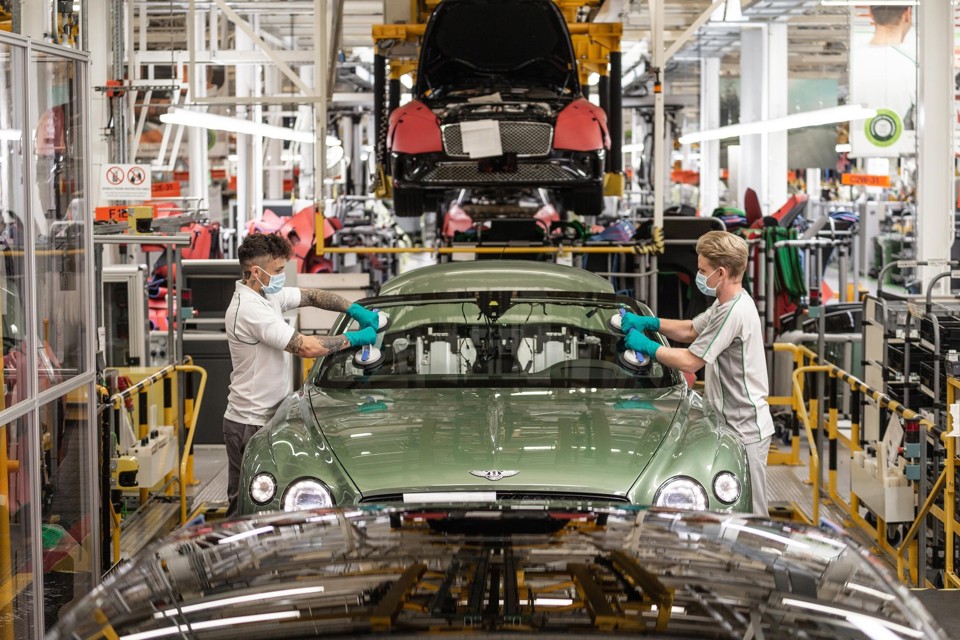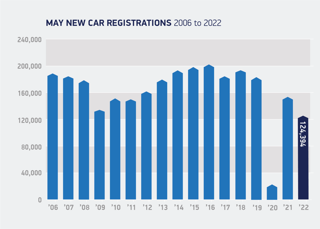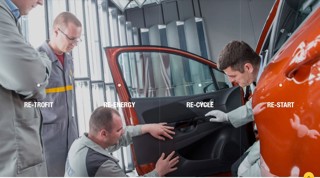The UK automotive industry has reduced its carbon footprint to the lowest level on record, with a reduction of 11.2% in 2021.
Data from the Society of Motor Manufacturers and Traders’ (SMMT) latest Sustainability Report shows that automotive production and the supply chain emitted 81,095 fewer tonnes of CO2 in 2021 compared with the previous year.
UK car production in 2021 fell 6.7% to only 859,575 units, the worst total since 1956. Output was 61,353 less than 2020, which was affected by coronavirus lockdowns, and 34.0% below pre-pandemic 2019.
Despite reduced production, the industry was still able to improve its environmental efficiency, with a 6.1% reduction in water used per vehicle produced, and a 2.6% reduction in waste going to landfill year on year.
The SMMT’s research shows that 96.2% less waste per vehicle goes to landfill than did at the start of the millennium. In addition, since 2015 the industry has ensured 95% of a vehicle by weight goes through a takeback network to be re-used, recycled or recovered.
Specialist and low volume manufacturers were even more successful in delivering sustainable production, emitting 26.6% less CO2 per vehicle produced and sending no waste to landfill at all. Water use per vehicle also fell by 11.6%, while overall production increased by 40.2%.
The report also shows the industry is continuing to invest in its people: apprenticeship positions increased by 67%, in part due to the cessation of pandemic restrictions, but were also a full 16% higher than pre-pandemic levels as the sector secured top talent for the future. Moreover, signatories remain committed to employee development, despite the overall economic challenges faced by businesses. In 2021, the number of training days per employee increased by 5.6% year on year, to 1.7 days per employee.
The sector’s economic contribution is also revealed, with UK automotive-related manufacturing turnover estimated to have recovered by 5% in 2021 to £67.1 billion, while automotive-related GVA is estimated at £14.1 billion, with 182,000 people directly employed in manufacturing roles.
Mike Hawes, SMMT chief executive, said, “With the automotive sector still trying to recover from the pandemic while simultaneously transitioning to zero emission vehicles, the improvements made in the sustainability of production this past year is a remarkable achievement.
“The report shows the industry delivering on its commitments, with dramatic reductions in both the energy used to make vehicles, and the emissions they release when on the road. The automotive sector is central to the UK’s carbon reduction ambitions and, with government support to improve UK competitiveness, we can ensure that transition continues to create well-paid, clean-tech jobs while generating economic prosperity and growth in all regions of the UK.”
The UK car manufacturing sector was described as “deeply troubled” as soaring energy costs and competition from the EU tempered optimism following the first uplift in productivity for 11 months.
Production rose by 13.3% year-on-year in May, ending a run of monthly decline which started in July last year, as 62,284 vehicles left factories across the UK.
However, year-to-date output has decreased by 23.2%, with supply chain constraints pegging back production to 330,185 units built.



















Login to comment
Comments
No comments have been made yet.